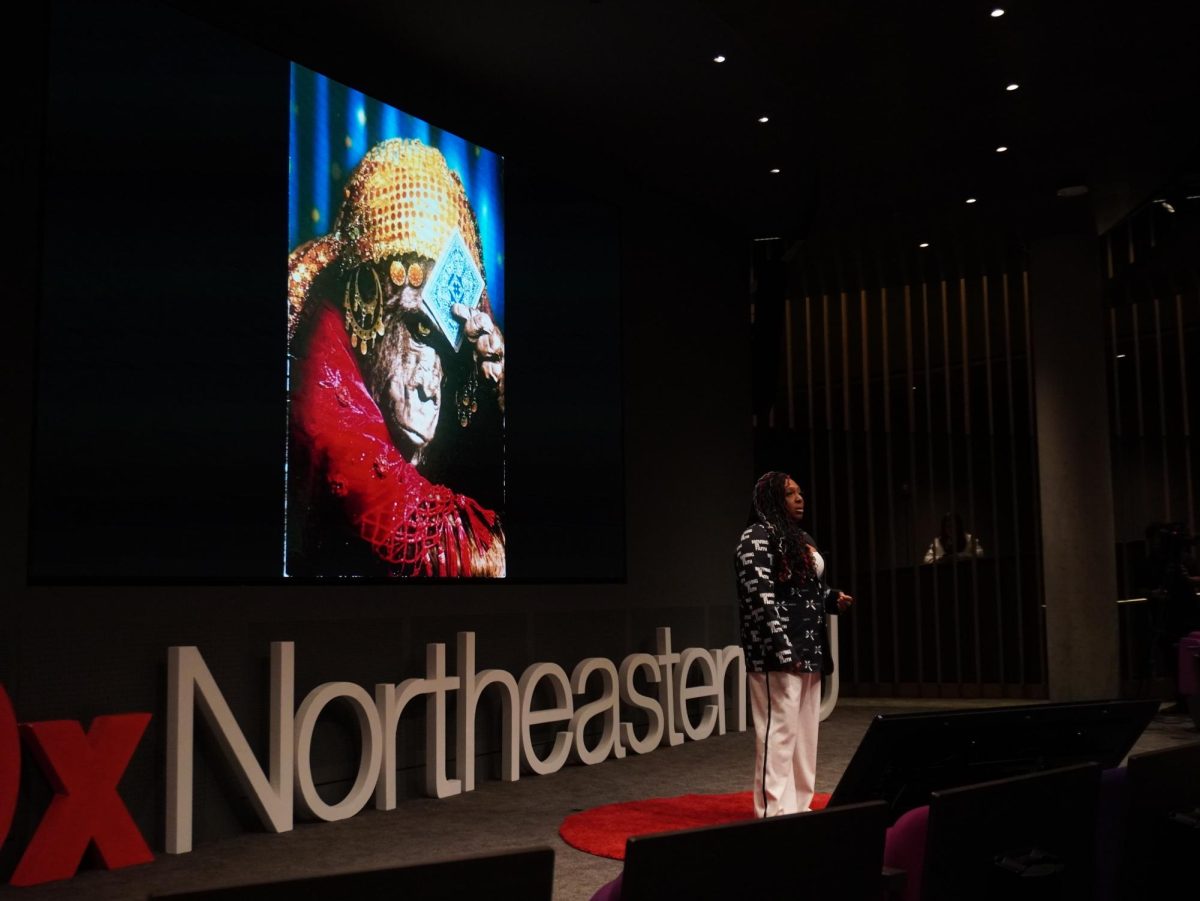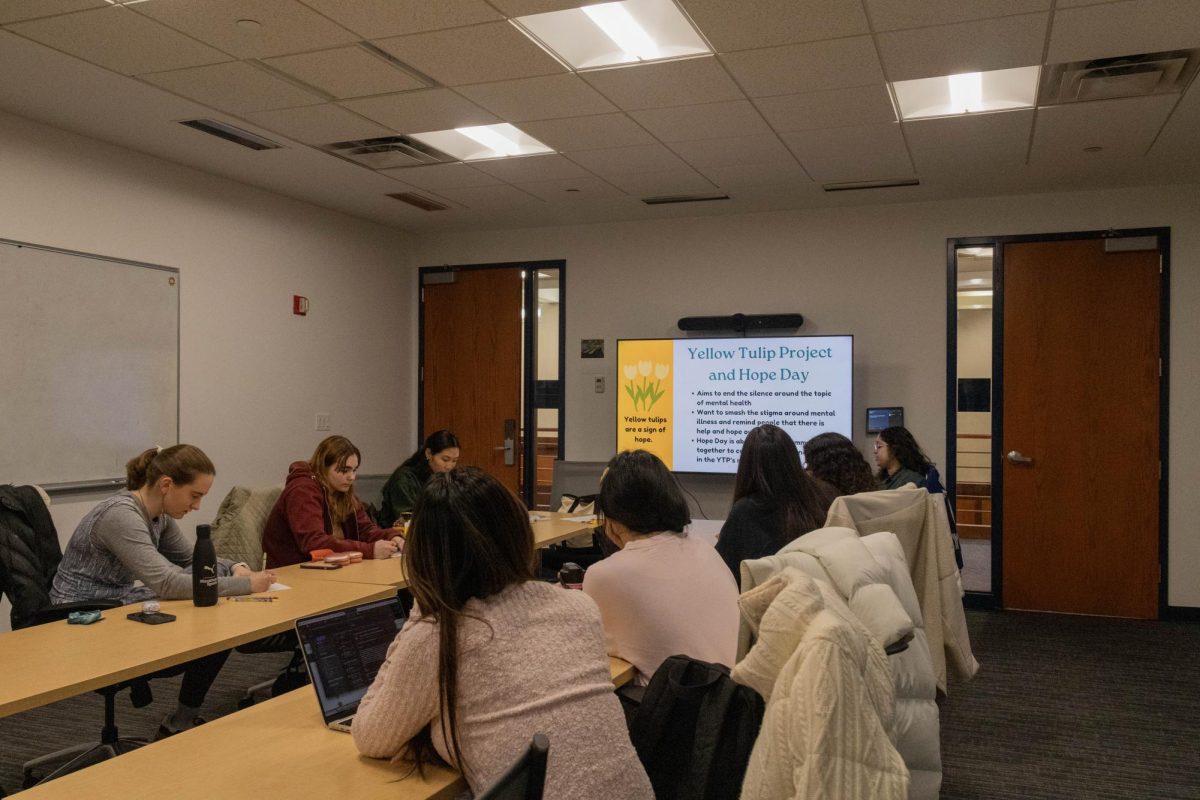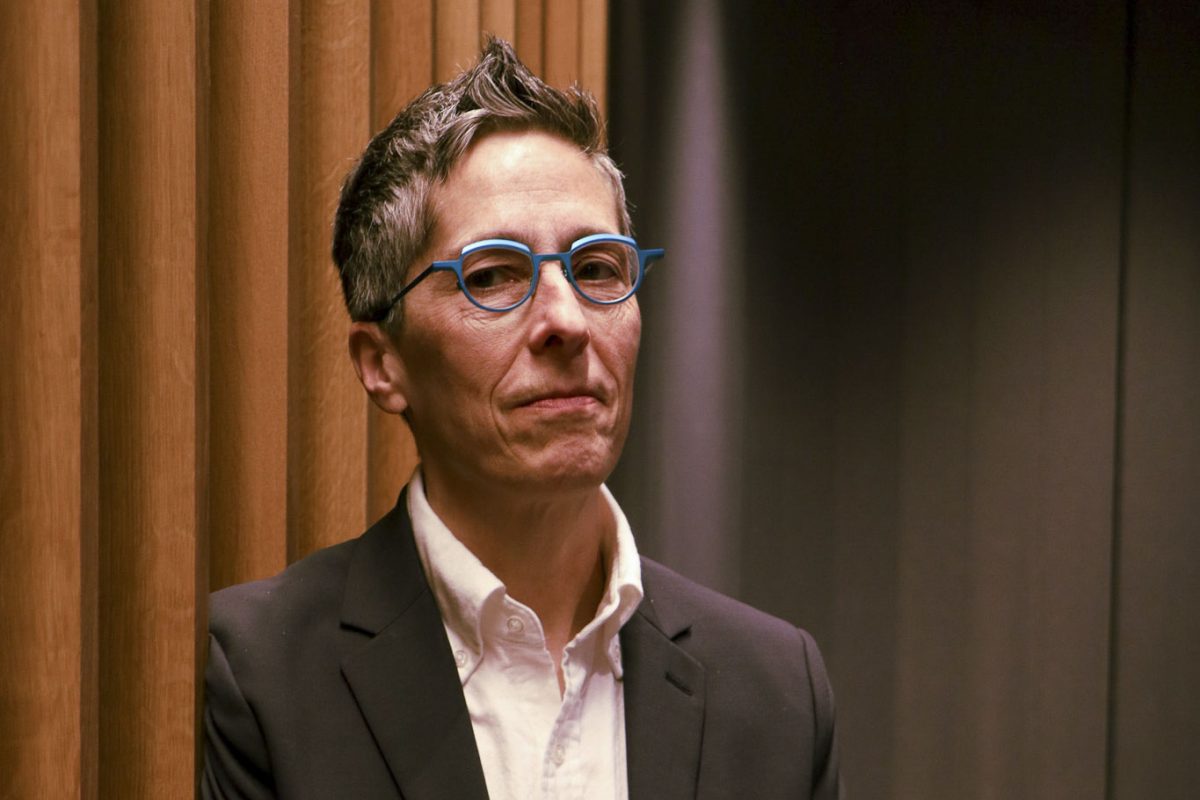By Todd Feathers, News Staff
Northeastern needs to do more to distinguish itself from other universities during a “critical tipping point” in the future of higher education, President Joseph E. Aoun told the Faculty Senate on Wednesday.
In his address to the Senate, Aoun said the widespread emergence of online college-accredited courses and dwindling funding for schools nationwide pose two difficult challenges for all universities, including Northeastern. He said the university plans to put a sharp focus on developing professional master’s degrees in competitive fields and improving the in-classroom experience in an attempt to distinguish Northeastern from other schools and online classes.
“Universities are stepping in big-time into the online situation. Online is not going to give anyone a competitive advantage because everyone has it,” Aoun said. “The situation is going to have profound consequences for us in higher education and us here at Northeastern. It becomes more important than ever for a university or college to articulate the value of its education.”
Northeastern has received national recognition for its experiential learning requirements and co-op program, and The Princeton Review ranked Northeastern’s career services as the best in the country for 2012. But Aoun said Northeastern will no longer be able to rely on the co-op program to separate it from other universities, which are beginning to adopt similar cooperative education programs themselves.
“We have a monopoly of nothing,” he said. “Good ideas can and will be copied.”
Citing the high-tech improvements made to the new Digital Media Commons in Snell Library as an example of the university’s effort to improve the on-campus experience, Aoun said Northeastern needs to develop a classroom environment that offers more than just the lecture content otherwise available online.
In order to remain a top-tier school, the university needs be more focused on developing advanced degrees in specific areas, such as network services and drug development, which are highly competitive fields and areas where the university already specializes in research, Aoun said.
Some senators questioned the university’s physical capacity to house new faculty members, new degrees and new research.
“In drug development and in basic sciences we don’t have the infrastructure that we need to even hire the basic faculty,” biology professor Phyllis Strauss said.
Aoun replied that the university expanded research facilities at 140 The Fenway this past summer and is exploring the option of building an entirely new research building in coming years.
He said in the last five to six years the university has added more than 330 faculty members and has developed the facilities to support them.
But Aoun then warned the Senate that the school cannot take for granted its status as a top-tier research university due to funding cuts that may be looming from the federal government.
“No matter who the president is, we have a fiscal cliff that will impact research, that will impact financial aid,” he said.
In addition to advertising Northeastern as a leader in research and advanced degrees, Aoun said the university also needs to brand itself as a leader in “global experiences” for it undergraduate students.
But Richard Katula, a communications studies professor who leads a dialogue to Greece, said he fears students are avoiding studying and working abroad because of rising costs.
During his talk, Aoun said the university is looking into ways to reduce the cost of dialogues and international co-ops.
Despite frequent warnings about the fragile state of higher education nationwide, the president characterized Northeastern as being in a strong position to maintain its position as a prominent university.
“The new master plan we’re considering is moving us toward solidifying our position as a premier institution,” Aoun said. “What we need to do is determine that we can be best in a domain, whatever that domain is.”








